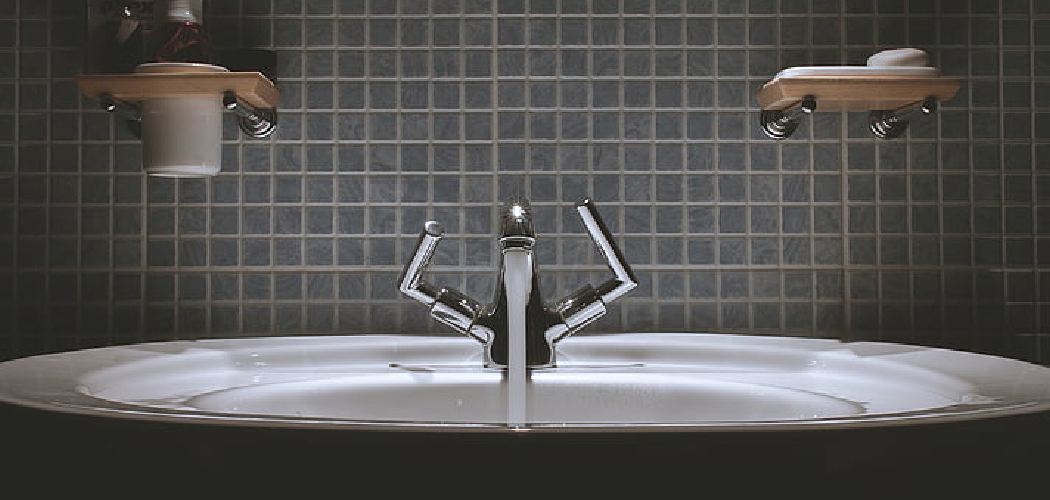Are you suffering from an annoying gurgling sound coming from your bathroom sink? If this sounds familiar, you’re not alone. Gurgling sinks are one of the most common plumbing problems that homeowners deal with. But don’t worry – there are easy steps you can take to remedy the issue without having to call a plumber.
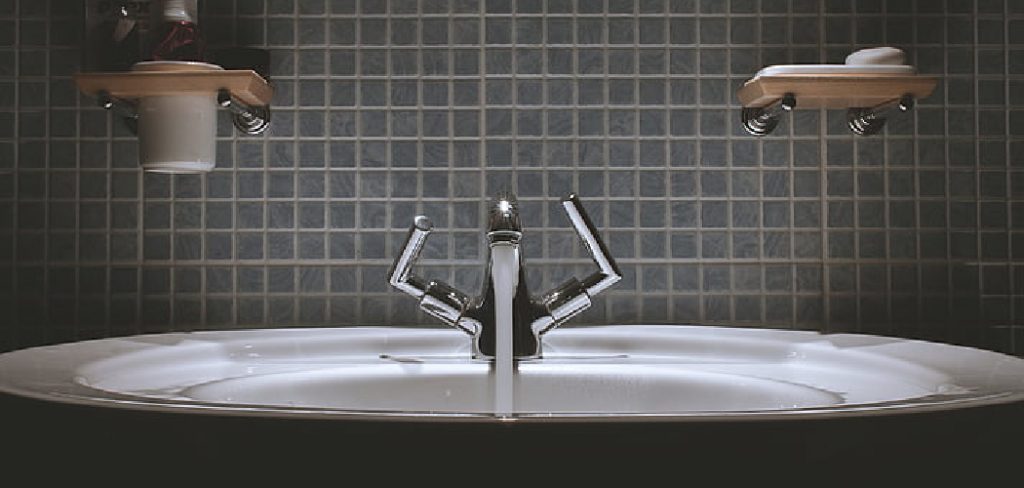
In this blog post, we will share easy tips and helpful advice on how to stop a gurgling bathroom sink so that you can reunite in peaceful silence with your washroom sanctuary. Keep reading for actionable steps you can take today!
Why Does My Bathroom Sink Make a Gurgling Noise?
A gurgling noise coming from your bathroom sink could be caused by a few different things. It is important to identify the source of the sound in order to fix it and stop it from happening again. The most common causes are air bubbles getting trapped in the pipes, blockages in the drain pipes, or a damaged vent pipe.
Air Bubbles:
Air can get trapped in your plumbing system when you use water-using appliances such as washing machines or dishwashers that draw water quickly from the system. This sudden decrease in pressure can cause air bubbles to become trapped in your bathroom sink drains.
When these bubbles reach the surface of the sink, they can make a loud gurgling noise. To alleviate this problem, you can try running your taps for a few minutes to let the air bubbles out.
Blockage:
Blockages in your drainpipes can also cause a gurgling noise in your bathroom sink. This blockage could be caused by anything from food waste, grease, or soap scum that has built up over time and is preventing water from draining away properly.
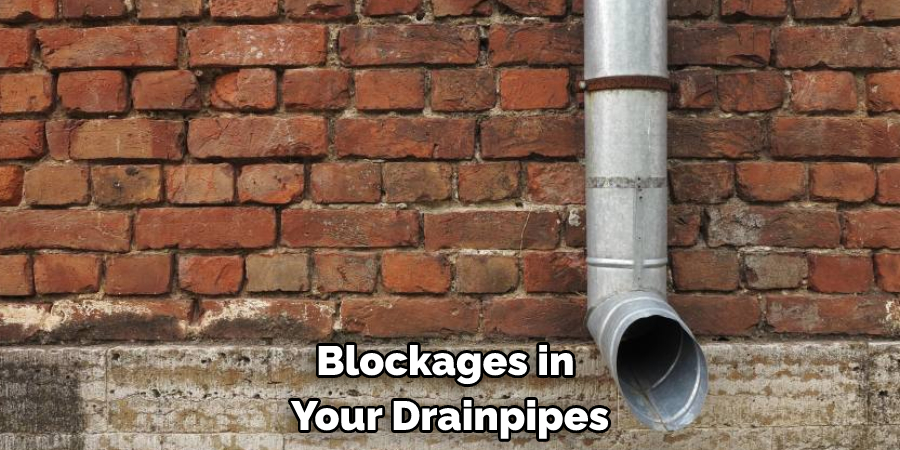
If you suspect this is the cause of the gurgling noise, then you should use a plunger to try and clear any blockages from the pipes.
Damaged Vent Pipe:
A damaged vent pipe can also lead to a gurgling sound in your bathroom sink. The purpose of the vent pipe is to allow air into the drainpipes so that when water flows through them, it doesn’t create a vacuum.
If the vent pipe is cracked, blocked, or damaged in any way, then it can lead to gurgling noises coming from the sink. To fix this problem, you should check the vent pipe for any damage and replace it if necessary.
By identifying the source of the gurgling sound in your bathroom sink, you can take the necessary steps to fix it and stop it from happening again. If you are still uncertain about the cause of the noise or don’t feel comfortable trying to fix it yourself, then it is best to call a professional plumber for assistance.
10 Methods How to Stop a Gurgling Bathroom Sink
1. Check the P-Trap:
The P-trap is a U-shaped pipe located under the sink. This trap holds water to prevent sewer gases from entering your home. If the water in the P-trap evaporates, it will allow sewer gases to enter your home through the drain.
To check the P-trap, simply remove the drain cover and look for water in the trap. If there is no water in the trap, you will need to add some water to it. Once the P-trap has water in it, the gurgling noise should go away.
2. Clean the Sink Stopper:
The sink stopper is located at the bottom of the sink drain. Over time, hair and other debris can become caught in the stopper, which can cause a gurgling sound when water drains from the sink. To clean the stopper, simply remove it from the drain and rinse it off with warm water.
If the stopper is clogged with debris, use a pair of needle nose pliers to remove it. Make sure to clean off any residue from the stopper before replacing it. If the gurgling persists, you may need to replace the sink stopper with a new one.
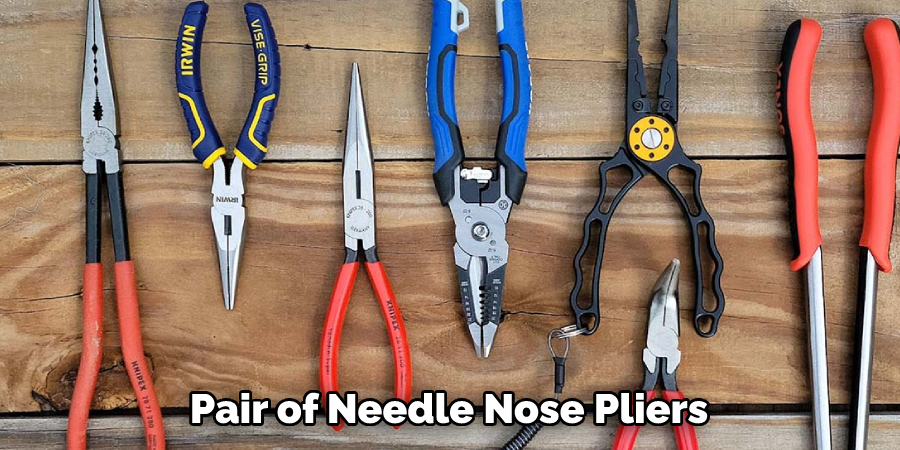
3. Clean the Drain:
Hair and soap scum can build up in your drain over time, which can cause a gurgling sound when water drains from your sink. To clean your drain, you can use a plunger or a plumber’s snake (a long, flexible wire that is inserted into the drain to clear blockages).
If you don’t have a plunger or snake, pour approximately one cup of baking soda into the drain and then follow it with one cup of white vinegar. This mixture will help to break down the blockage and remove any residue from the inside of your pipes.
4. Check for Leaks:
Leaks in your plumbing can also cause a gurgling sound when water drains from your sink. To check for leaks, simply turn off all of the faucets in your home and then go outside to see if any water is dripping from your home’s exterior faucets or pipes.
It’s also a good idea to take a look around your sink, as well as under and behind it, to see if you can spot any signs of leaks, such as water stains or mold. If you do find a leak, contact a plumber as soon as possible to have it repaired. These leaks can cause major damage to your home if left unattended for too long.
5. Check for Venting Problems:
Every plumbing fixture in your home must be properly vented in order to work correctly. If a fixture is not properly vented, it can cause a gurgling sound when water drains from that fixture. To check for venting problems, simply look at all of the vents on your roof to see if they are clear of debris (such as leaves or branches).
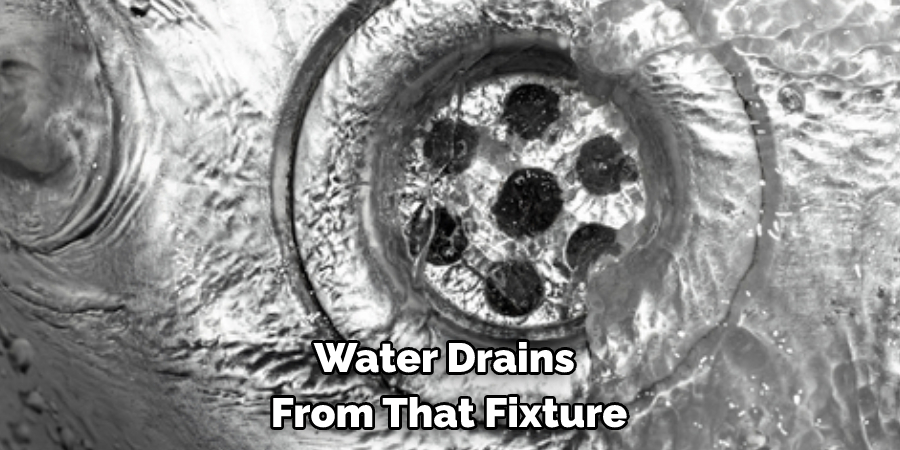
If any of the vents are blocked, clear them out and see if the gurgling sound goes away. If not, you may need to contact a professional plumber. They will be able to assess the situation and make sure that all of your plumbing fixtures are properly vented.
6. Check for Clogs:
Clogs are one of the most common causes of gurgling sinks. A clog can be caused by anything from hair to soap scum to food waste. To check for clogs, simply remove the drain cover and look for any obstructions in the drainpipe.
If you see an obstruction, you will need to remove it before it causes further problems. To remove the clog, you can use a plunger or auger. If these tools do not work, it may be necessary to contact a professional plumber.
7. Check for Airlocks:
An airlock is created when air gets trapped in your plumbing system. This trapped air can cause a gurgling sound when water drains from affected fixtures. To check for airlocks, simply turn on all of the faucets in your home and then go outside to see if any water is spurting out from any of your home’s exterior faucets or pipes. If you see water spurting out, this indicates an airlock in your plumbing system.
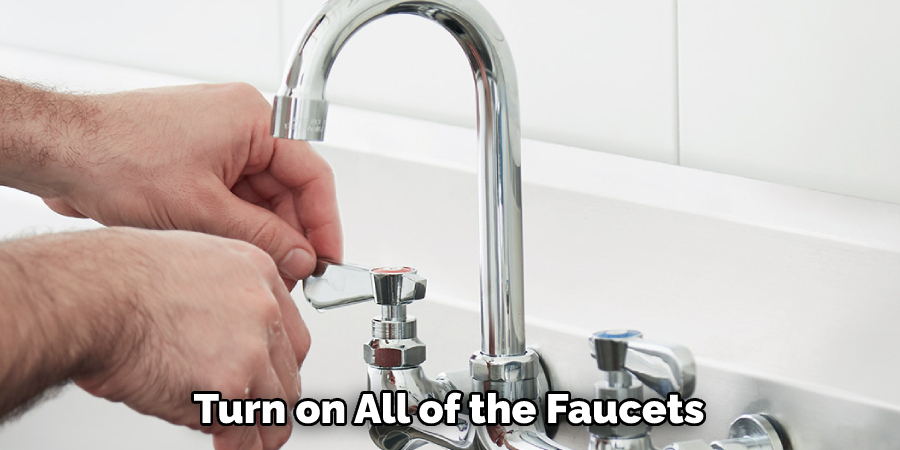
8. Check for Collapsed Pipes:
Collapsed pipes can also cause a gurgling sound when water tries to draining through them. To check for collapsed pipes, simply remove any access panels that are located around your plumbing system (such as in crawl spaces or basements) and then inspect all of your pipes for any signs of damage (such as cracks or holes).
If you see any damage, you will need to repair or replace the damaged pipe before it causes further problems. It’s also a good idea to wrap any exposed pipes in insulation to prevent future issues with freezing.
9. Use Boiling Water
If your bathroom sink is still gurgling after you have checked the P-trap, vent stack, and drain, you can try using boiling water to clear any remaining blockages. Simply bring a pot of water to a boil and pour it down the drain.
Be careful not to splash yourself with hot water while you are doing this. After you have poured boiling water down the drain, flush it with cold water to cool off any remaining debris.
10. Use Baking Soda and Vinegar
Another effective way to stop a gurgling bathroom sink is to use baking soda and vinegar. This combination will create a chemical reaction that will help to break up any blockages that may be present in your drain.
To use this method, simply mix equal parts of baking soda and vinegar together and pour them down your drain. Allow them to sit for 30 minutes before flushing with cold water. This should help to clear any blockages and stop the gurgling sound coming from your sink.
Conclusion
In the end, it is essential to remember that the steps for how to stop a gurgling bathroom sink are not complicated. No matter the complexity of the problem – from a clogged drain to exposed plumbing – you can take control of your home repairs by learning how to fix them yourself. Taking action and building your knowledge regarding bathroom sink maintenance will help avoid long-term issues and keep your fixtures free-flowing.

